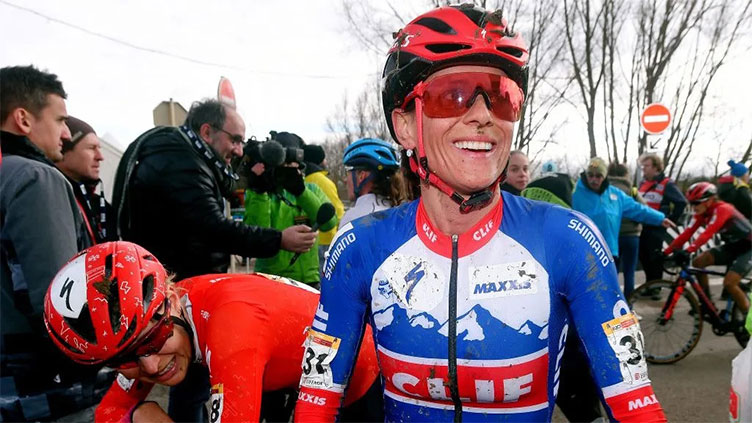Czech Olympian Nash cleared of doping after dog medicine defence

Sports
USADA disclosed that Veteran Czech cyclist Nash has not violated the WADA rules.
PARIS (Reuters) - Veteran Czech cyclist Katerina Nash has avoided a four-year ban after a U.S. Anti-Doping Agency (USADA) investigation determined the five-time Olympian's positive test had been a result of administering medicine to her pet dog.
Nash, 45, tested positive for the appetite stimulant capromorelin after providing an out-of-competition urine sample on Oct. 24 2022, USADA said.
Capromorelin is not specifically listed on WADA's "Prohibited List" but is considered by the global anti-doping body to be a non-specified substance in the class of peptide hormones, growth factors, related substances and mimetics.
It is banned at all times under USADA and International Cycling Union anti-doping protocols.
California-based Nash provided records of a prescription liquid pet medication containing capromorelin.
"She was administering the medication orally to her dog each day during the final weeks of her pet’s life in an effort to maintain weight," USADA said in a statement.
Due to the difficulty of administering the medication Nash came into contact with it via her hands. The bottle did not warn users about the risk of contamination from exposure to skin.
Working with lab experts USADA established that such exposure would cause a positive test, the agency said.
It therefore concluded Nash had no fault or negligence and would not be sanctioned.
If she had not been cleared, Nash, who competed as a skier at two winter Olympics before switching to cycling, faced a four-year ban.
"As in this case, we always work as hard to try to exonerate the truly innocent as we do to convict those who intentionally cheat," said USADA boss Travis Tygart.
USADA disclosed Nash's no-fault violation in keeping with WADA rules but Tygart said the rules needed to change.
"If there is no question that an athlete comes into contact with a prohibited substance from a completely innocent source and there is no effect on performance, USADA continues to advocate that there should not be a violation or a public announcement,” he said.
"The rules must change and all of us must wake up and demand a more fair and just global anti-doping system that catches and sanctions intentional cheats who rob clean athletes but does not railroad innocent athletes."

